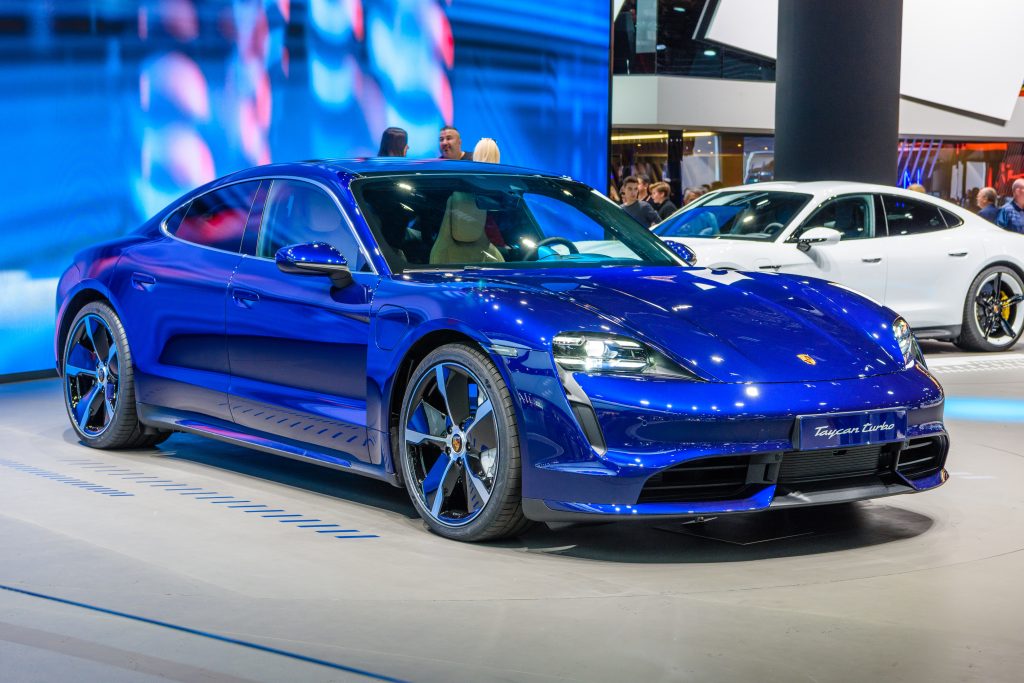Volkswagen Revs Up for EV Revolution With Planned Porsche IPO
According to a recent announcement by Volkswagen, shares in Porsche could be floated publicly in late September or early October

Based on recent reports, one of the largest initial public offerings (IPOs) in European history could drop in the near future, as the iconic car company Porsche is expected to float its stock in late September or early October.
The IPO is expected to value Porsche at somewhere between $70 billion and $80 billion, with the sale of 12.5% of the company’s shares producing roughly $10 billion in fresh capital.
Those proceeds will be scooped up by Volkswagen AG (VWAGY), which is the sole owner of Porsche, after completing its acquisition of the luxury German car marker back in 2012.
Volkswagen is said to be selling shares in Porsche to help stock up its war chest ahead of an ambitious plan to electrify half of its annual vehicle sales by 2030. In 2021, Volkswagen sold roughly 8.6 million vehicles, 5% of which were electric.
Volkswagen intends to funnel a good chunk of the forthcoming capital into increased manufacturing capacity for EV batteries.
Car enthusiasts drawn to the new Porsche listing will likely be hoping that the company’s shares follow the same path as Tesla (TSLA) and Ferrari (RACE). Since debuting in 2015, Ferrari stock is up over 250%. Shares in Tesla have experienced an even more jaw-dropping run, climbing by over 1,100% over the last five years.
The Volkswagen listing announcement indicates that Porsche’s shares will float on the Frankfurt Stock Exchange and should count as one of the largest-ever initial public offerings in European history. The new shares could eventually be offered in the United States, via American depository receipts (ADRs).
Additional IPO Details
As many are well aware, Volkswagen and Porsche share a long and complicated history.
Interestingly, the iconic Volkswagen beetle was actually designed by one of the original founders of Porsche: Ferdinand Porsche. Porsche itself was formed in 1948, and the company manufactured its first-ever vehicle in 1949: the Porsche 356. That year, only 52 total units were produced. By 1973, the company was producing 10,000 vehicles annually.
Porsche attempted to acquire Volkswagen just prior to the 2008-2009 Financial Crisis. But that attempt infamously backfired, and Porsche was instead forced to merge with Volkswagen in 2011.
Importantly, while Volkswagen is the sole owner of Porsche, the family of the original Porsche founders (Ferdinand Porsche and Anton Piech) maintain a considerable stake in Volkswagen. The heirs of Porsche/Piech own 31.4% of Volkswagen’s stock and control 53.3% of Volkswagen’s total voting rights through an investment vehicle known as “Porsche SE.”
The complicated nature of this relationship helps explain why the forthcoming IPO has been constructed in a unique manner.
To wit, Volkswagen will offer 25% of Porsche’s total value in the upcoming IPO. But of that 25%, only 12.5% will be floated to the public, while the other 12.5% will be sold directly to the Porsche/Piech family heirs (i.e., Porsche SE). The remaining 75% stake in Porsche will be retained by Volkswagen.
Notably, the 12.5% preferred stock that will be sold to the public will be of the “non-voting” variety.
Critics have suggested that this arrangement provides the Porsche/Piech heirs with a disproportionate level of control over the company. And the unusual nature of the Volkswagen/Porsche corporate governance structure doesn’t stop there, because at present, Oliver Blume serves as the CEO of both Volkswagen and Porsche.
Considering the brand’s global strength, these peculiarities may not be enough to dampen demand for Porsche’s forthcoming shares. Instead, it might be general market malaise that derails the listing plan.
Volkswagen has already warned that continuing weakness in the global markets could force the company to temporarily table the offering. The current pullback in global stocks has certainly impacted Volkswagen shares in recent months.
The graphic below highlights how Volkswagen has lagged other European car manufacturers in the stock market over the last 12 months.
To learn more about how initial public offerings fit into the global capital markets, readers can check out this installment of From Theory to Practice on the tastytrade financial network.
For daily updates on everything moving the markets, readers can also check out TASTYTRADE LIVE—weekdays from 7 a.m. to 4 p.m. CDT—at their convenience.
Get Luckbox! Subscribe to receive 10-issues of Luckbox in print! See SUBSCRIBE or UPGRADE TO PRINT (upper right) for more info or visit getluckbox.com.
Sage Anderson is a pseudonym. He’s an experienced trader of equity derivatives and has managed volatility-based portfolios as a former prop trading firm employee. He’s not an employee of Luckbox, tastytrade or any affiliated companies. Readers can direct questions about this blog or other trading-related subjects, to support@luckboxmagazine.com.




















